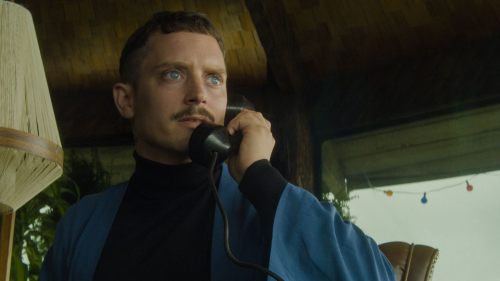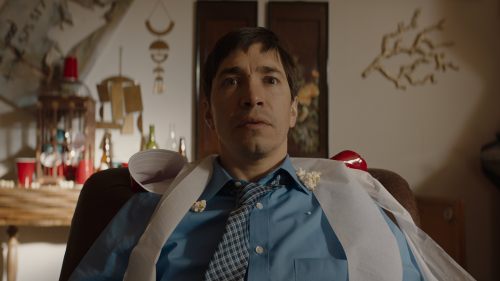Fantastic Fest Review: SAINT MAUD Wants To Save Your Soul
A recent convert to Christianity, the reserved Maud (Morfydd Clark) rarely speaks of anything but her unerring faith. Once a nurse at a public hospital, a past trauma involving the death of a patient has led her down an obsessive path of righteousness bordering on mental illness. “I hope you will reveal your plan for me soon,” she prays, desperate for guidance. Now working as a private care nurse for the headstrong Amanda (Jennifer Ehle), a once celebrated dancer dying from lymphoma of the spine, Maud becomes convinced it is her mission in life to save the woman’s soul.
First time filmmaker Rose Glass exquisitely confronts the dualities of faith versus obsession and good versus evil in this tense, psychological thriller. Maud easily trusts and begins to confide in Amanda – who affectionately refers to the meek, pretty nurse as her personal savior – sharing her experiences of feeling the presence of God when she speaks to him, which is depicted through unnerving contortions of the young woman’s face and body. While this hints more at demonic possession than divine intervention, Maud’s pure, persistent faith allows no room for doubt or questioning of God’s plan. However, those seeking answers to the questions surrounding Maud’s spiritual awakening won’t find them here. Ambiguity is the key to the horrors lurking in the dark corridors of Glass’ beautifully shot chamber piece.
Themes of duality also echo in the relationship and personalities of these complex and compelling women. Jennifer Ehle beautifully embodies both Amanda’s animosity toward being trapped in a decaying body that once moved so gracefully, as well as the solemn acceptance of her fate. Her anger often manifests in nights spent attempting to recreate her hedonistic glory days, only to cause herself excruciating pain and more grunt work for Maud.
Always there to clean up the mess, Morfydd Clark’s Maud initially appears so unassuming and gentle that it comes as a shock when she launches into an assertive attack on anyone daring to taint Amanda’s soul. When Amanda’s boredom with her slow demise turns to cruel bouts of bullying, with Maud being the easiest target, the deterioration of their bond leads the nurse even further down her vague and misguided path. Clark’s performance invites both our suspicion and sympathy as the lonely Maud searches within and without for her true calling. The superb performances from Ehle and Clark of the intense bond that forms between patient and caregiver, extending to the personal demons they battle within themselves are the seductive centerpiece of the film.
Comparisons to Brian De Palma’s Carrie and Ingmar Bergman’s Persona are accurate and inevitable, yet Glass brings her own unique edge to the genre of character driven horror. Her haunting atmosphere is sprinkled with a wry sense of humor, keeping the audience engaged as Maud’s spiritual journey builds to an ending you’ll be thinking and talking about long after you leave the theater. With the unbelievable quality of her first feature, Rose Glass has not only secured a place on the list of filmmakers to watch, she’s secured a spot among her most revered influences.



